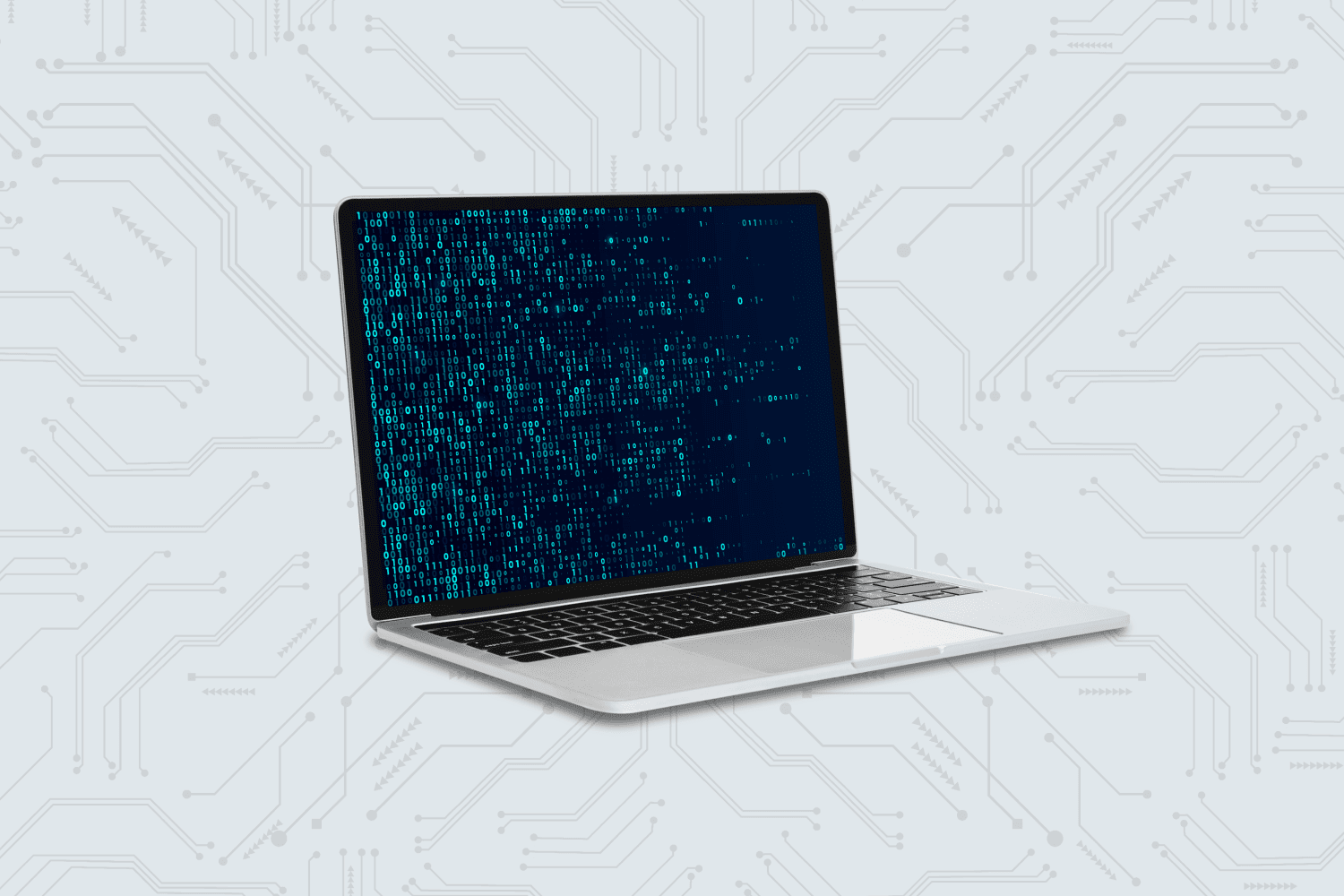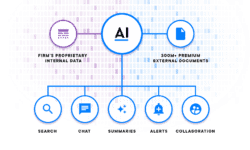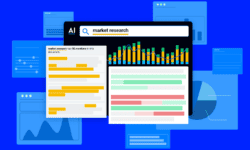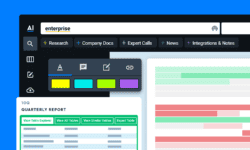The past year saw the rise of generative artificial intelligence (genAI) as countless tech companies such as Open.AI (i.e. ChatGPT), Google (i.e.Vertex AI), and Microsoft (i.e. Copilot) launched breakthrough solutions. Heading into 2024, there are no signs of the momentum slowing, reinforcing the reality that AI adoption is essential to thrive in today’s market landscape.
At AlphaSense, we’re seeing early genAI in enterprise software success stories taking shape in two routes: companies benefiting directly through the application of genAI tasks, and companies leveraging genAI to enhance an internal product offering.
By leveraging AlphaSense’s Expert Insights found within our vast expert transcript library—which boasts an extensive range of firsthand perspectives from experts covering the latest trends and topics—we dig into how this new variation of AI will revolutionize the enterprise space.
Prospects for Open-Source and Closed-Source Models
There are findings to make a case for either open-source or closed-source models for the enterprise market. Smaller models introduced by the likes of Meta Platforms show chops, particularly for enterprises, where cost optimization, productivity, and security may be better managed.
An industry expert weighs in on the pros and cons of smaller vs enterprise adoption and the dilemma companies face:
“That’s the fork in the road right now, whether you take Llama or Mistral or one of the many other smaller models that are easily available on-prem or put your trust in one of these big boys and use their enterprise solution. There’s still not enough trust in these bigger companies to do better data stewardship.”
– Customer, Microsoft | Expert Transcript
New Techniques: Retrieval-Augmented Generation and Vector Databases
To dispel notions that AI is unethical, unreliable, or biased, developers are combining retrieval-augmented generation (RAG) with LLMs to generate more accurate answers. RAG reduces hallucinations and enables verification through citations embedded in a model’s answers, allowing a prompter to verify any claims made.
An industry expert notes that Databricks is adopting this path within its LLMs:
“Databricks offers the path wherein you put in a query, the query goes into a database, the database matches with specific context, that context gets added on to a query, and then goes into an LLM. Sometimes [Lang] implementation is very unique and available only on Databricks, and that makes it a big advantage for deployment, especially on productivity-based applications, which is heavily reliant on a lot of documents.”
– Customer, Teradata | Expert Transcript
Another industry expert also sees the growing commoditization of LLMs but the potential differentiation of RAG and Langchain, especially between major tech companies, like Google, OpenAI, and Facebook:
“A lot of folks in AI, what they’re doing is, and I mentioned this before, is making these different AI systems like OpenAI or Google’s system or Facebook’s system, they’re making a commodity to choose one of these and making it interchangeable. Being able to choose different models at will and having the LangChain or the RAG supplementary training to still work with these commodity LLMs is pretty powerful.”
– Industry Expert, Microsoft | Expert Transcript
As AI architectures evolve, other infrastructure elements potentially change specific to the enterprise. Companies like Vast Data and Databricks are redefining hardware within enterprise to handle AI workloads innovatively.
And when it comes to up-and-coming innovations within AI space, one expert thinks Vast Data’s storage capability developments are noteworthy:
“What Jeff and Renen have signaled out to the market with the VAST DataEngine, the VAST DataBase, the VAST DataSpace, I think it’s revolutionary. The concept of building thinking machines and putting all the thinking on the storage layer so that AI could leverage it, from a vision perspective, sounds like a standalone company to me.”
– Former Executive, VAST Data | Expert Transcript
Addressing New Cybersecurity Threats
Since genAI innovations and integrations are still rolling out, the lines between cybersecurity and enterprise genAI applications have yet to be fully drawn. That being said, many enterprises are willing to adopt this technology but are unaware of the risks associated with it.
According to one expert, currently CIOs see more harm than good that a genAI model can do to internal information:
“I would say 99% of enterprises have not yet truly integrated generative AI into their IT and business logic. Many more sophisticated companies have already declared a moratorium on generative AI use cases until they go through these kinds of security reviews because of the concern that once you attach these generative AI models to your corporate data.”
– Director, Intel | Expert Transcript
AI model security, zero-trust identity, and cloud security are all top of mind as AI applications expand. Analyst research from the AlphaSense platform expects future plans to include specialized tools to improve the security and rigor of proprietary AI app models.
One expert points out that there’s also an increased risk with less trained staff, as advancements in genAI may be ahead of their technical expertise in some instances—potentially leading to security breaches:
“You’ve got less trained software engineers using code from AI systems, trained on insecure examples, that’s going to create a significant amount of more risk. You’re generating more insecure code from people with less training in the systems. That can cause a much greater risk for organizations that leverage AI to build their technologies and products.”
– Former VP Engineering, Rapid7 | Expert Transcript
Track Key Trends in Enterprise Software with Expert Insights
The generative AI space is fast-evolving, as more companies compete in the race to innovate and invent. With AlphaSense’s extensive expert transcript library, filled with valuable Expert Insights, you can reduce the time it takes to find critical market insights and allocate more time to strategic decision-making.
Discover more expert insights and predictions in our report, Generative AI in the Enterprise Software Sector: A Look At Adoption in 2024.
For a complete breakdown of enterprise search use cases, benefits, and considerations, check out our Guide to Enterprise Search.
For a comprehensive enterprise software buyer’s guide, don’t miss our post Best Enterprise Search Software in 2024.
Start your free trial of AlphaSense today to take your primary market research to the next level.




